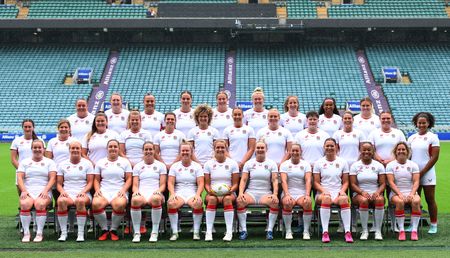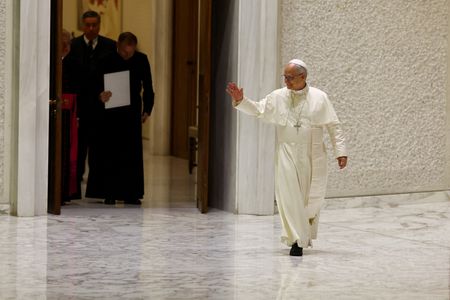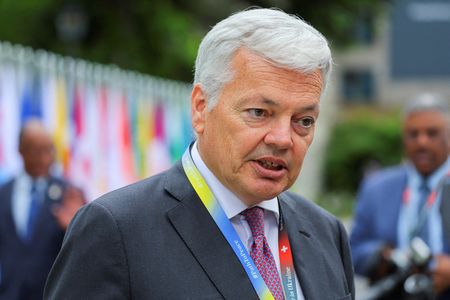By Mitch Phillips
LONDON (Reuters) -One decision not to kick for goal, one stolen lineout, one more lost final – whatever anyone in the England camp is saying, it is impossible not to look at this year’s Women’s Rugby World Cup through the prism of what happened in Auckland three years ago.
England’s dominance before and after that fateful day at Eden Park has been extraordinary and they go into Friday’s opening match against the United States having won 57 of their last 58 matches.
But the one that got away, and more importantly the way it got away, ensures there will always be that nagging doubt if, as expected, the Big Two meet again in the 82,000 sold-out Twickenham final on September 27.
England were cruising at 14-0 up before a red card and, in a see-saw match, trailed 34-31 entering the final minute. Awarded a very kickable penalty that would have taken the game to extra time, England instead opted for a lineout.
It seemed a logical decision after their driving maul had been – and continues to be – such a fearsome weapon, with New Zealand usually staying on the ground to try to defend it and usually failing as England scored four tries with it.
This time, however, they opted to compete and Joanah Ngan-Woo wrote her name in Black Fern history by grabbing the ball to secure New Zealand’s sixth title – five of them coming after beating England in the final.
Most of the tearful Red Roses are on duty again this time round, including Emily Scarratt who will be playing in her fifth tournament, while they are now coached by vastly experienced Kiwi John Mitchell.
His challenge has been to keep England on edge, even as they pummel everyone they come up against, which he says has been achieved by creating fierce internal competition for places and “embracing the aura” around the team.
“We are looking to stay away from the risk of failure and talking about those sorts of things,” he said. “We’re a different team from 2022 and now we’ve got an opportunity to earn the right and finish something that we started.
“I think the stuff that drives us the most is our competition within. Some people tend to frame “pressure” as a negative word whereas I see this as an opportunity to be successful.”
PATCHY FORM
New Zealand’s form has been patchy since, including three heavy defeats to England, but their pedigree – winning six of the last seven tournaments – means they will always pose a huge threat.
Canada, ranked second in the world despite their amateur status, have had to crowd-fund to pay for their trip and, along with France, look the only teams capable of derailing the two favourites from their seeded journey to the final.
Whatever the results on the pitch, the World Cup is already looking a huge success in terms of interest and ticket sales.
Last time it was held in England 15 years ago, 30,000 watched the entire tournament, including 13,000 for the final at Harlequins’ Stoop ground.
This time 40,000 will be at Sunderland’s Stadium of Light for the opener, 82,000 will be at the final at Twickenham – smashing the record for a women’s international – and 375,000 of the 470,000 available tickets have been sold.
“We are ready to break records in attendances, viewership and engagement. This is going to be the biggest global celebration of women that we have ever seen,” WRWC Managing Director Sarah Massey said on Tuesday.
“Our message to fans is, don’t miss out. This is going to be unmissable. You’re going to see thrilling action, electric atmospheres, and be quick, because those remaining tickets are really selling fast.”
(Reporting by Mitch Phillips, editing by)










